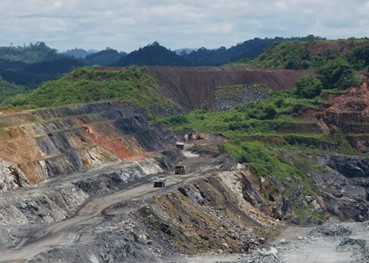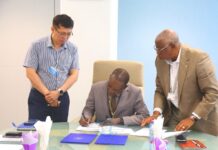Ningxia Tianyuan Manganese Industry Group Company Limited, the parent company of Ghana Manganese Company (GMC), plans to establish a manganese refinery in the country, Minister of Lands and Natural Resources, Samuel Abu Jinapor, has announced.
If implemented it will be the country’s first manganese refinery, with the minister stating that government is eager to add value to its manganese resources which are being exported in their raw form.
The minister, who disclosed this in parliament following his participation in the recent China Mining Conference and Exhibition, said government recognises the importance of adding value to minerals.
“Since 2017, we have been putting together the building blocks to ensure value addition to these minerals, including the establishment – with the help of this august House – of the Ghana Integrated Aluminium Development Corporation (GIADEC) and Ghana Integrated Iron and Steel Development Corporation (GIISDEC).
“Gold being our foremost mineral, we will do everything possible to ensure that we add value to our gold resources, develop the gold downstream sector, and increase the contribution of gold to our national economy,” he said.
Ghana is home to substantial manganese deposits and has been a significant producer and exporter of manganese ore. The country has exported manganese to various international markets, contributing to its economic development.
Meanwhile, Mr. Jinapor – who was responding to a question by Dr. Kwabena Donkor on the percentage of gold refined in the country and other forms of value addition being promoted for the gold sector – said government is still working on securing London Bullion Marketing Association (LBMA) certification.
The LBMA certification, he said, aims to facilitate easy export and trade of refined gold on the international market. “We have already commenced the processes of securing LBMA certification to enable us easily export and trade our refined gold on the international market,” he said.
“We have had extensive engagements with Rand Refinery – the only LBMA Good Delivery accredited refiner on the African continent, and one of only five internationally recognised referees by the LBMA – to assist us in going through the LBMA certification process. Though the COVID-19 pandemic somewhat stalled discussions, we have since 2021 scaled-up these engagements.
“We expect that these initiatives will yield the necessary results to enable us refine not only gold produced in Ghana but also from across the West African sub-region,” the minister added.
In 2018, he said, through a Public Private Partnership government took steps to establish a gold refinery with daily capacity of 400 kilogrammes – which is now completed and ready for full operation after successful testing.
Mr. Jinapor however acknowledged the historical challenges faced by the country in establishing an internationally recognised gold refinery. He observed that all gold is currently exported in the form of dore or bullion due to the absence of a certified refinery in Ghana.
He outlined that the refinery stage is crucial for purifying dore into ‘Good Delivery’ bars, meeting international certification standards set by LBMA and other recognised schemes.
He attributed the challenges in developing refineries to lack of capital, absence of a robust downstream industry, and failure to attain LBMA certification.










